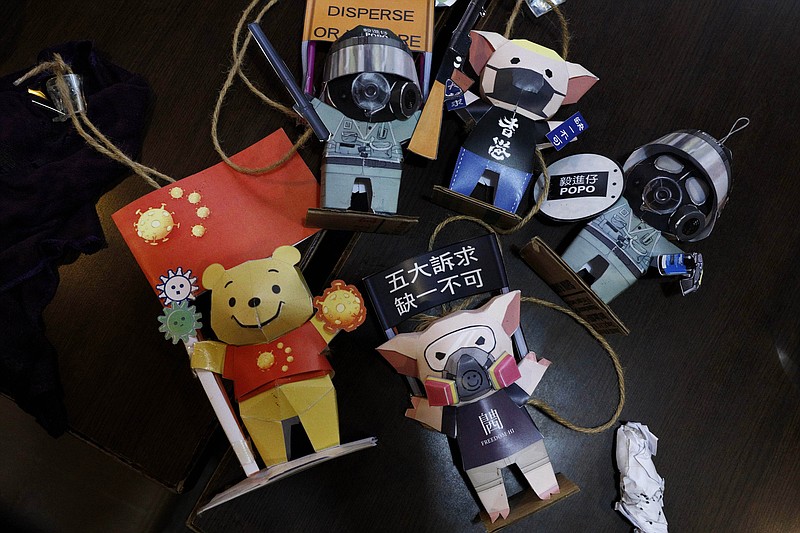Chinese foreign ministry spokesman Zhao Lijian said no amount of pressure from external forces could "shake China's determination and will to safeguard national sovereignty and Hong Kong's prosperity and stability."
He urged the U.S. to abide by international law and stop interfering in Hong Kong's affairs, and not sign a sanctions bill into law.
His comments came after the U.S. House of Representatives on Wednesday joined the Senate in approving a bill to rebuke China over its crackdown in Hong Kong by imposing sanctions on groups that undermine the city's autonomy or restrict freedoms promised to its residents.
The Senate gave final legislative approval to the measure on Thursday, a day after the House approved it. It now goes to the White House.
If the bill becomes law, "China will definitely take strong countermeasures, and all consequences will be borne by the U.S. side," Zhao said at a daily briefing.
Vice President Mike Pence in a television interview Thursday criticized what he called a betrayal of the international agreement China signed.
[Video not showing up above? Click here to watch » https://www.youtube.com/watch?v=iHnu2kW8Tt4]
"President Trump has made it clear that we're going to be modifying our trading relationship and the trading status with regard to Hong Kong and we're going to continue to speak out on behalf of the people of Hong Kong and on behalf of human rights of people within China," he told CNBC.
"We want to reset the trading relationship, but we want China to recognize international agreements, to recognize the human dignity of all of their people, and that includes all the people of Hong Kong." he said.
House Speaker Nancy Pelosi also praised the sanctions bill as "an urgently needed response to the cowardly Chinese government's passage of its so-called national security law."
"I have no doubt that the president will sign it and I'm confident that it will be properly enforced," said Sen. Pat Toomey, R-Pa., who co-sponsored the Senate version with Chris Van Hollen, D-Md.
The legislation provides for sanctions against financial institutions working with Chinese officials who are determined by the U.S. to be interfering in Hong Kong affairs. It requires the State Department to report to Congress every year about officials who seek to undermine the "one country, two systems" model that applies to Hong Kong. It gives the president the power to seize the assets of those individuals and block their entry to the U.S.
The law gives banks a kind of yearlong grace period to stop doing business with entities and individuals the State Department determines to be "primary offenders" when it comes to undermining Hong Kong's autonomy. After that period, the Treasury Department can impose a variety of penalties on those institutions, including barring top executives from entering the U.S. and restricting the ability to engage in U.S. dollar-denominated transactions, according to Toomey.
The sanctions would apply to Chinese banks as well as Chinese subsidiaries of U.S. banks, Toomey said during a conference call with reporters. He indicated it would mostly affect the largest Chinese lenders that do business with the U.S.
The law, Toomey said, is "certainly not a threat to American financial institutions."
Meanwhile, dozens of pro-Beijing activists and lawmakers protested outside the U.S. Consulate in Hong Kong to demand that the U.S. stop meddling. The group said it gathered 1.6 million signatures online in support of its call.
The security law outlaws secessionist, subversive and terrorist acts, as well as any collusion with foreign forces in intervening in the city's affairs. Critics say the law effectively ends the "one country, two systems" framework under which the city was promised a high degree of autonomy when it reverted from British to Chinese rule in 1997.
The maximum punishment for serious offenses under the legislation is life imprisonment, and suspects in certain cases may be sent to stand trial on the mainland if Beijing deems that it has jurisdiction.
Information for this article was contributed by Zen Soo and Matthew Daly of The Associated Press; and by Daniel Flatley of Bloomberg News.






